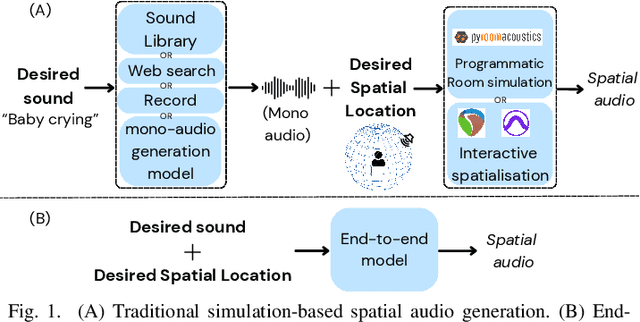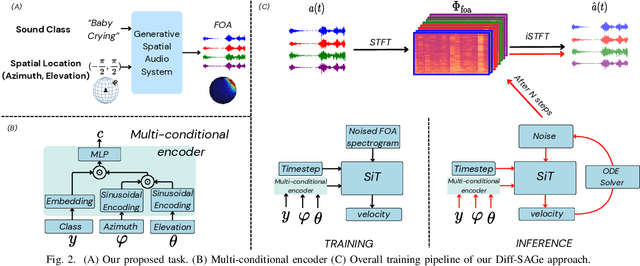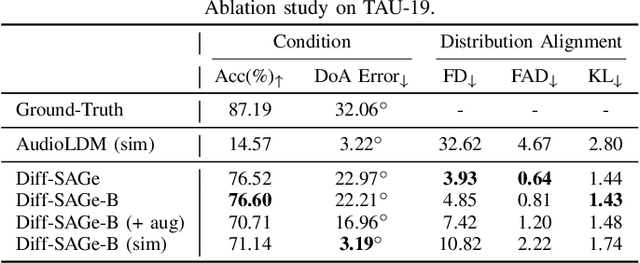Diff-SAGe: End-to-End Spatial Audio Generation Using Diffusion Models
Paper and Code
Oct 15, 2024



Spatial audio is a crucial component in creating immersive experiences. Traditional simulation-based approaches to generate spatial audio rely on expertise, have limited scalability, and assume independence between semantic and spatial information. To address these issues, we explore end-to-end spatial audio generation. We introduce and formulate a new task of generating first-order Ambisonics (FOA) given a sound category and sound source spatial location. We propose Diff-SAGe, an end-to-end, flow-based diffusion-transformer model for this task. Diff-SAGe utilizes a complex spectrogram representation for FOA, preserving the phase information crucial for accurate spatial cues. Additionally, a multi-conditional encoder integrates the input conditions into a unified representation, guiding the generation of FOA waveforms from noise. Through extensive evaluations on two datasets, we demonstrate that our method consistently outperforms traditional simulation-based baselines across both objective and subjective metrics.
 Add to Chrome
Add to Chrome Add to Firefox
Add to Firefox Add to Edge
Add to Edge